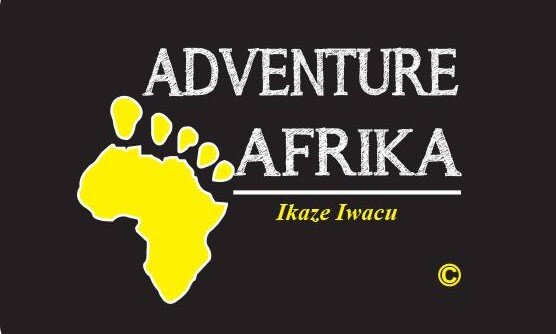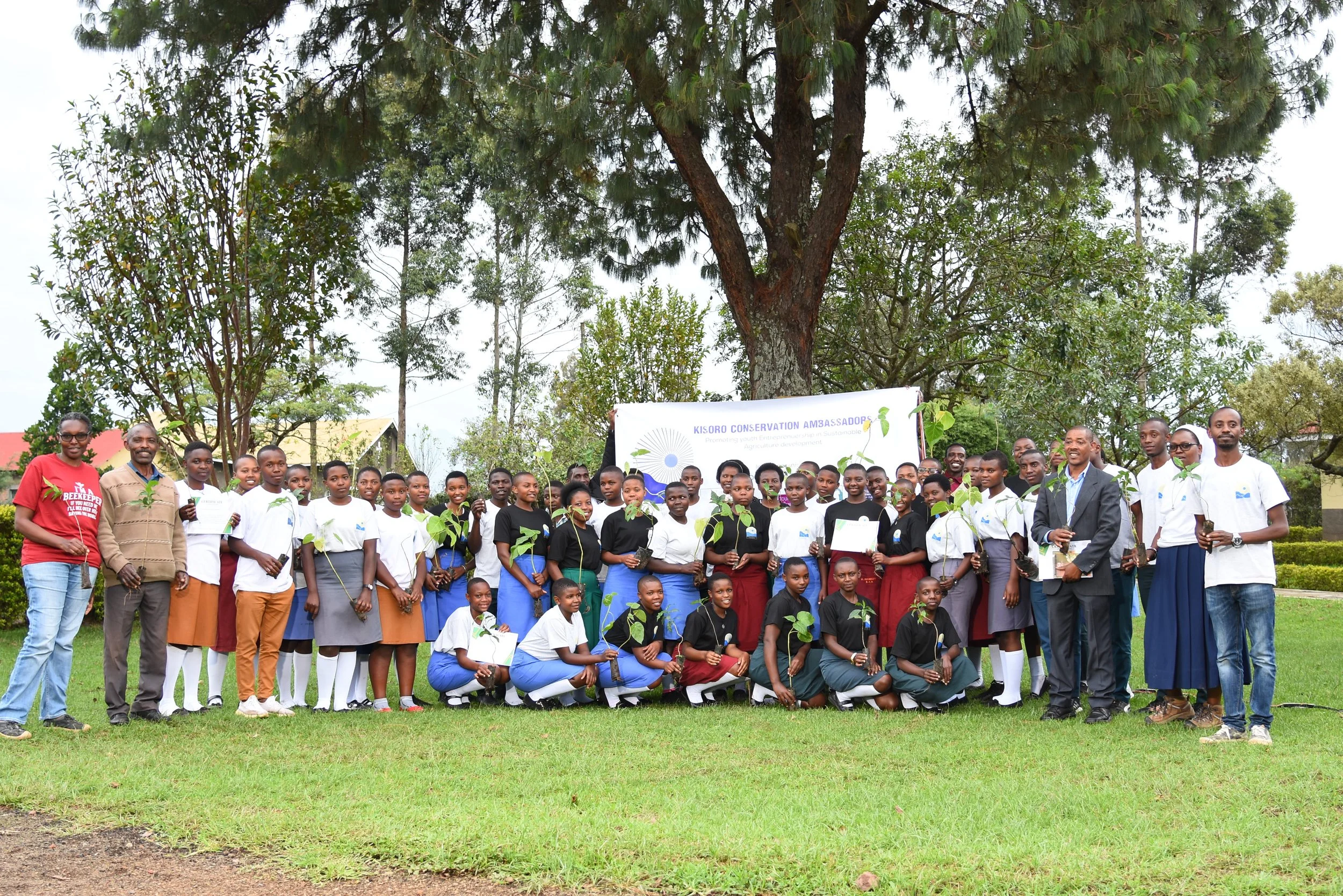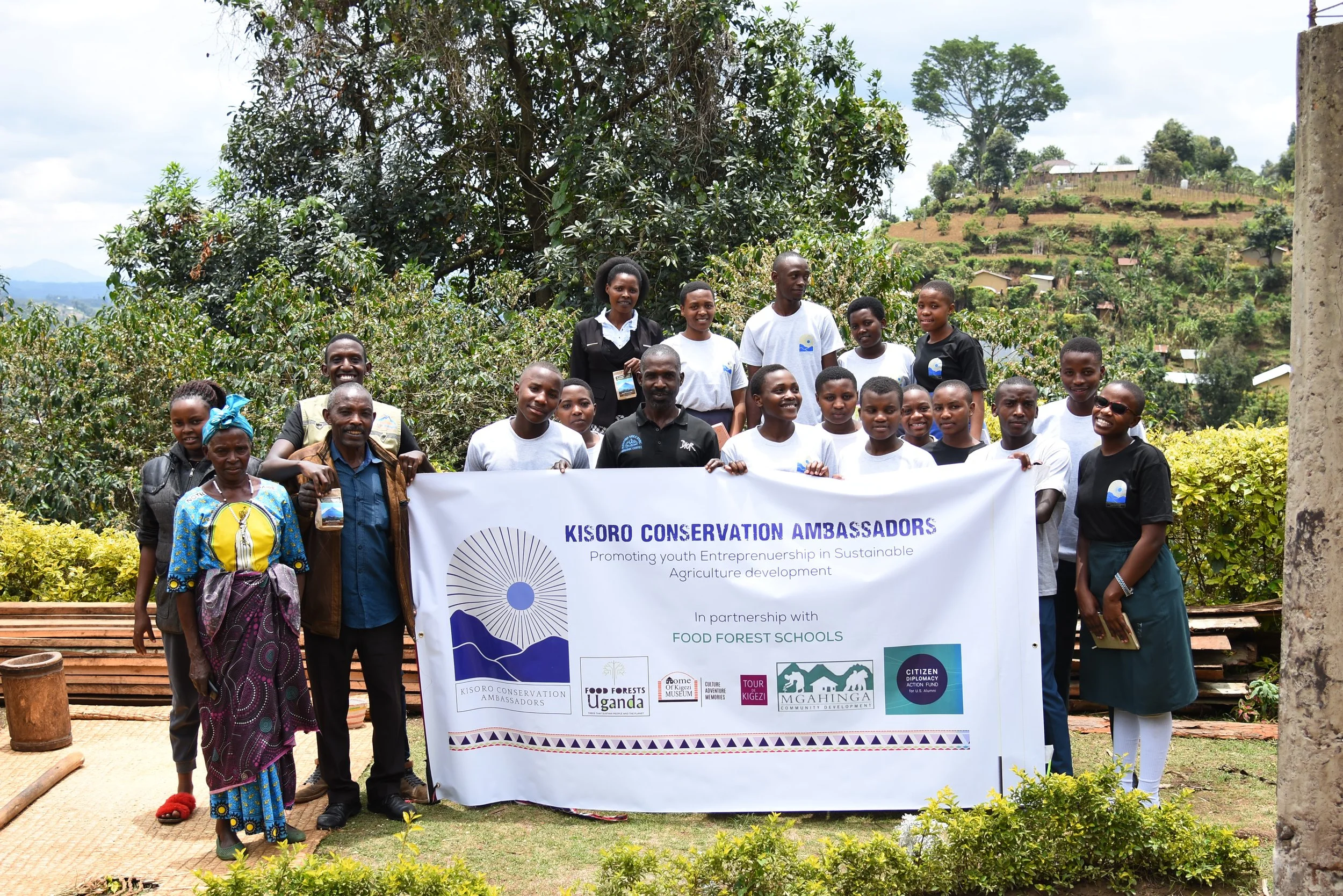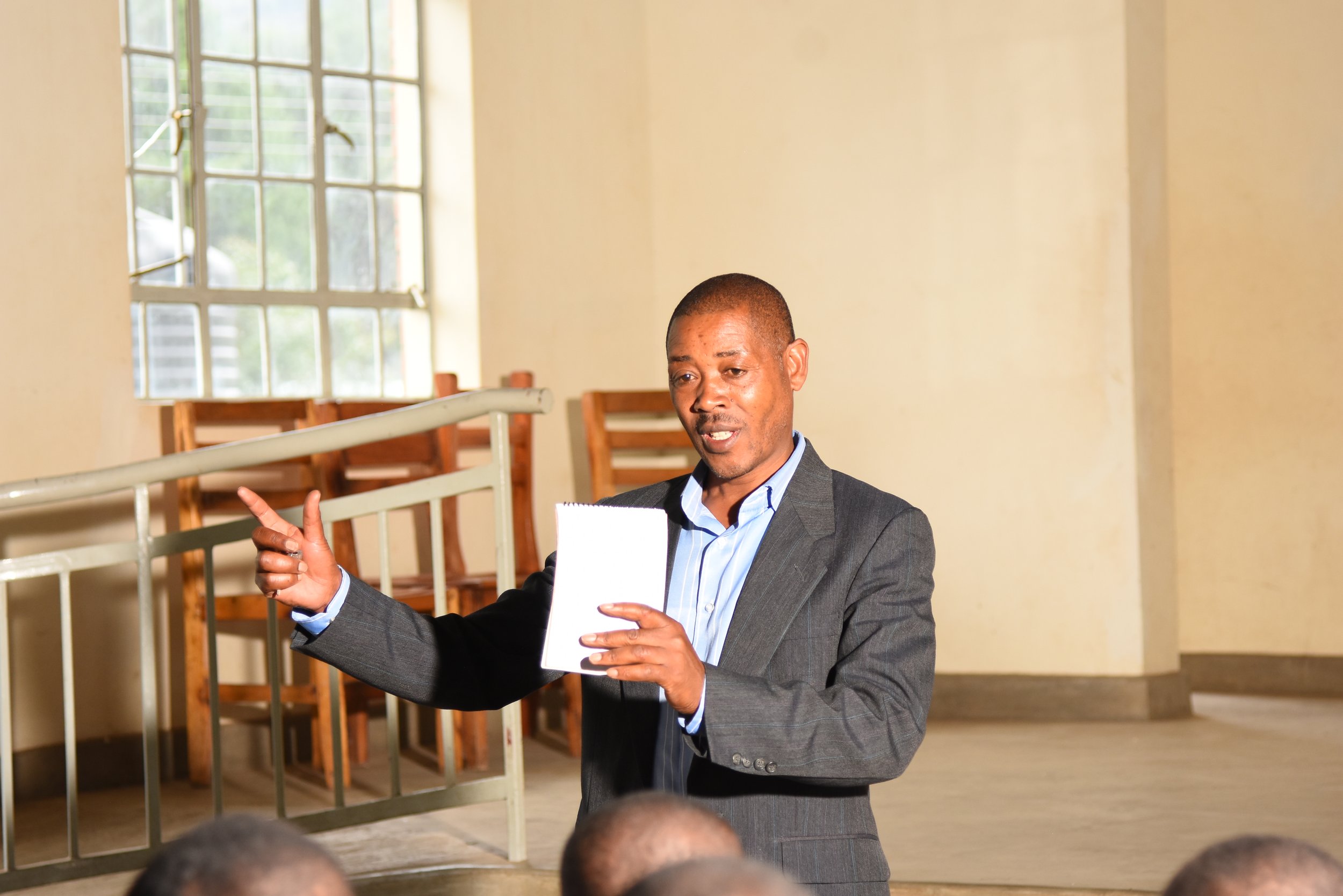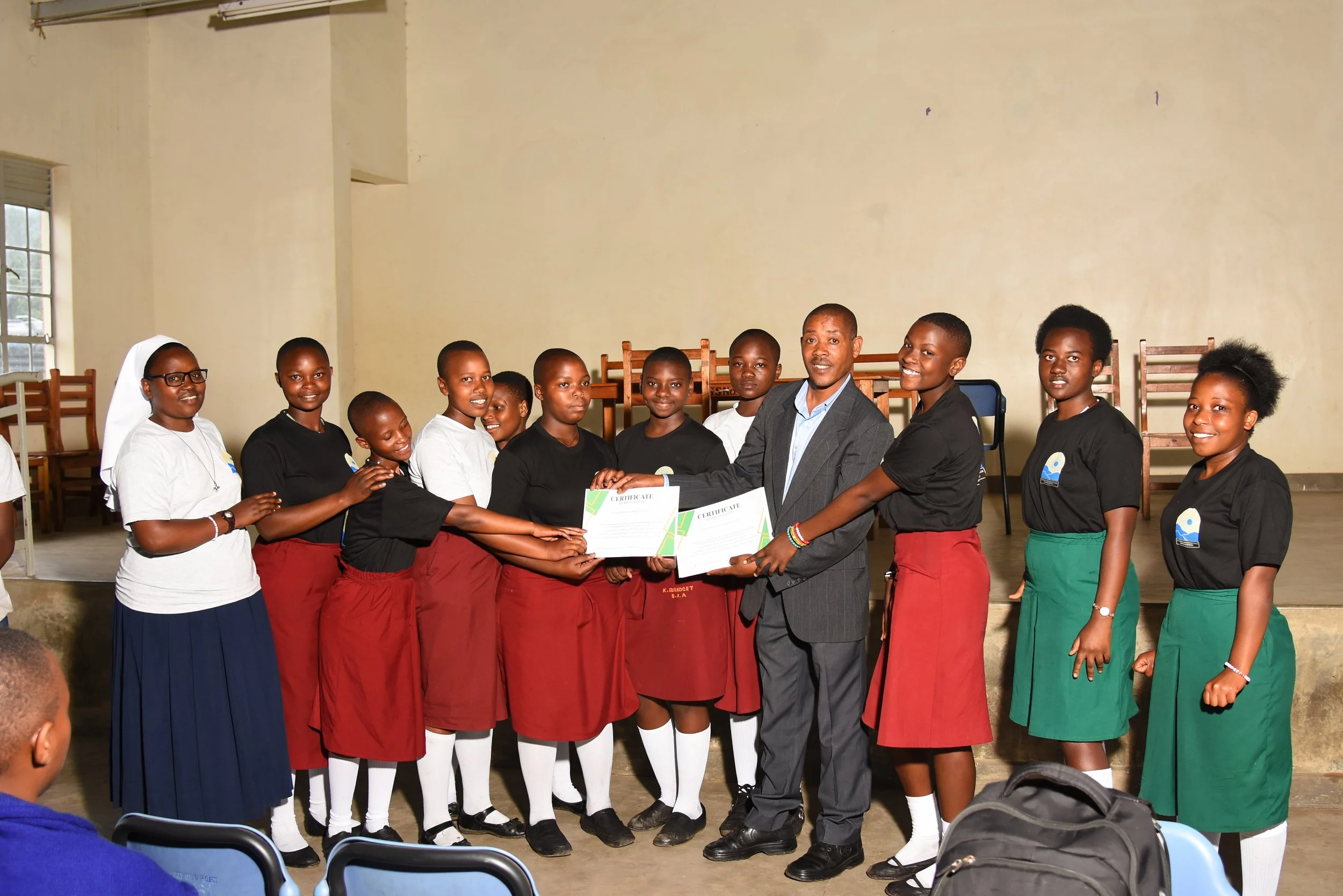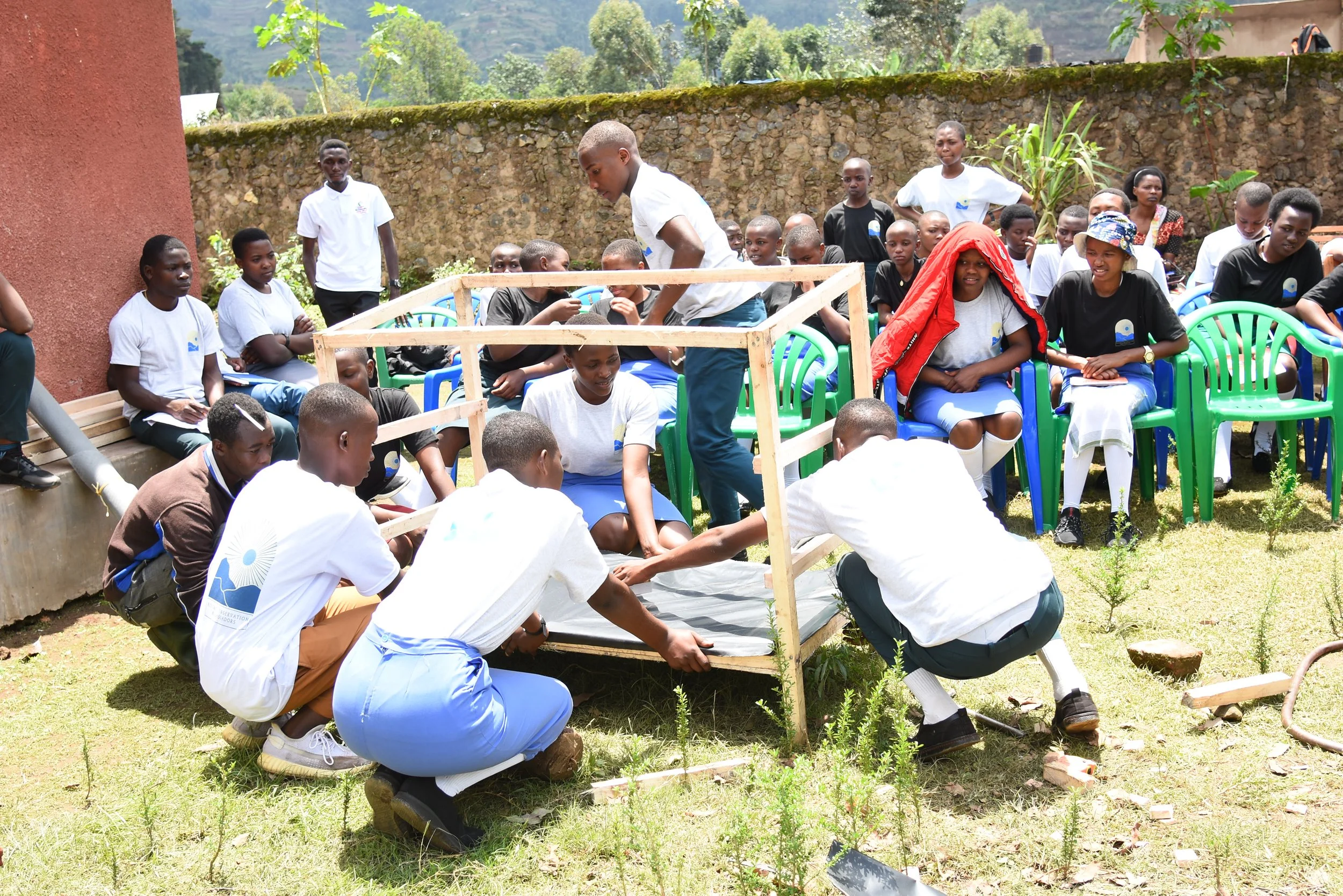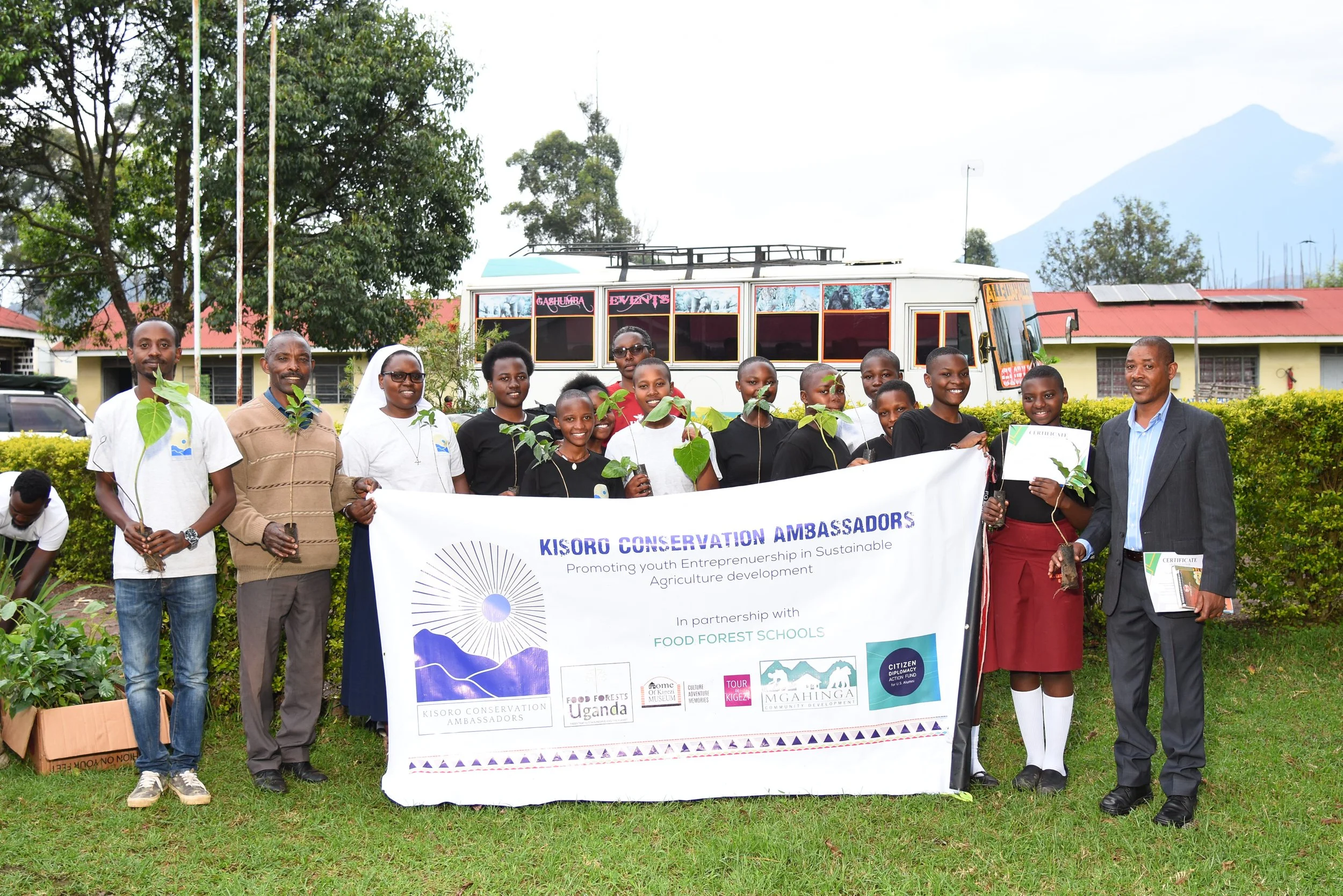Social Impact – US DEPARTMENT OF STATE'S CITIZEN DIPLOMACY ACTION FUNDED EVENT: Kisoro Conservation Ambassadors
Sustainable Agricultural Development and Value-Addition Opportunities in the Virunga Foothills of Kisoro, Uganda
As part of our conservation work, Adventure Afrika & Food Forests Africa Movement is involved in spreading the message and knowledge of permagardening and sustainable practices – which can be applied anywhere.
My colleague, Bruce, and I (Nkusi Gerald) knew about CDAF, and knew that we could use their support to promote efforts here in Kisoro. After our application was approved, we embarked on preparing our program. We identified local secondary schools whose goals aligned with ours. We brought in local experts and volunteers to help enhance the two-day training.
Students from 4 secondary schools of Kisoro Vision High School,St. Gertrude’s Girls School,Seseme Girls Secondary and Gisorora Secondary School volunteered to participate in the program. Our philosophy is that hands-on practice improves learning, especially with this type of work to be done. Highlights included:
Visiting with Jireh Women Beekeepers to learn about the benefits of bees and beekeeping.
Visiting Kisoro Volcanic Organic Coffee Farm to learn about planting, raising, harvesting and roasting coffee.
Visiting Home of Kigezi a local food forest to learn about planting local food-producing plants, herbs, herbal teas and their natural remedies.
Creating a solar dryer – for both coffee and herb processing
Learning general sustainable permagardening practices included: intercropping, mulch, compost, use of seeds from current plants to grow new plants.
Learning how to manage waste (e.g., plastic) and keep your garden space protected from pests and farm animals.
At the end of the training, the students broke up into groups and created plans for how they would put their learning into practice.
Our two-day training was rigorous but effective! We used a brief quiz to test students’ knowledge before and after training, and the results were positive. At the end of training, everyone received a certificate and an opportunity to take a tree seedling (e.g., coffee, avocado or tree tomato) with them.
Our work is not complete! Less than two weeks after the training, we began to take site visits to have the students show us their progress. They were able to identify space and began putting into practice what they had learned – including tree planting, intercropping, preparing space (weeding), preparing organic pesticide, bottle waste management – and most importantly, we witnessed some of them thinking beyond their projects and considering what other steps they could be taking.
